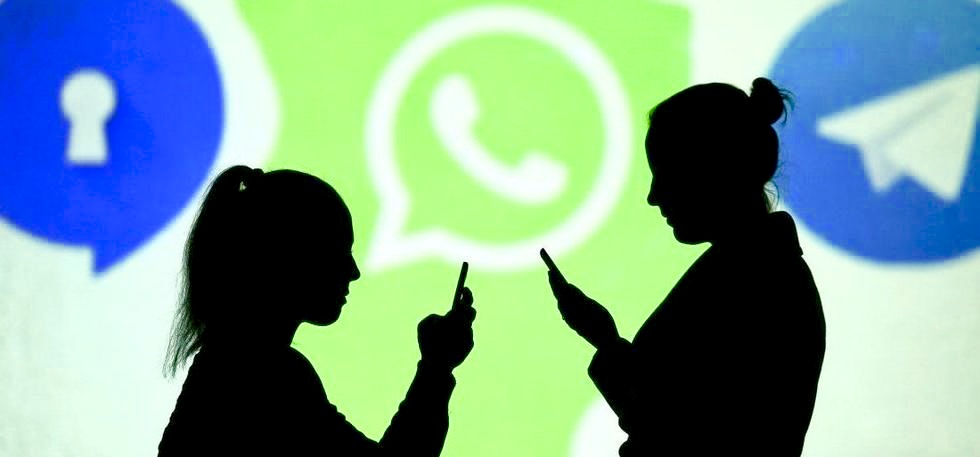It is unlikely that there will be a leadership challenge to the Prime Minister, Narendra Modi but his political capital will not escape unscathed from the pandemic, writes Riyaz Wani

The ongoing catastrophe in India has attracted a hell lot of bad press internationally. Major foreign newspapers, portals and television stations have blamed the Indian government for creating and precipitating the current crisis. This is the second time after the revocation of Article 370 in August 2019 that foreign media has been so roundly critical of Delhi.
In one case, the foreign ministry issued a rebuttal to an article published in The Australian. The article was originally published in the British newspaper, The Times written by Phillip Sherwell with the headline, Modi leads India out of lockdown and into a Covid apocalypse. It was reproduced in the Australian newspaper with the title — Modi leads India into a viral apocalypse.
The Indian High Commission’s rebuttal accused The Australian’s coverage of India’s Covid crisis as “motivated and malicious reports” helping in “spreading falsehoods” and urged the paper to “refrain” from publishing “such baseless” articles.
Held Personally Responsible
Though The Australian’s headline stood out for its punchiness, reports by the other major papers have been even more unsparing. A commentary published in Foreign Policy has directly blamed Prime Minister Narendra Modi for the crisis.
“What’s unfolding in India is more than a crisis triggered by a pathogen. It is a crisis precipitated by the conduct of its enamoured leader,” the piece written by Kapil Komereddi reads. It further called India as “the epicentre” of the pandemic. “The country’s healthcare system is on the precipice of total collapse. In New Delhi patients are suffocating to death, relatives are scrambling for beds, the most advanced hospitals have been reduced to begging the government for emergency supplies of oxygen, and crematoriums – blazing non-stop – have run out of room and wood”.

In a report headlined Covid desperation is spreading across India, The New York Times wrote that “infections, deaths and breakdowns that began in big cities a few weeks ago are rapidly advancing into rural areas, unleashing deep fear in places with a little medical safety net”.
In an opinion piece in The Washington Post, professor Sumit Ganguly held the Modi government responsible for the virulent second wave.
“This colossal failure of policymaking has many forebears: general callousness, crass electoral considerations and sheer ineptitude. For a government that first assumed office in 2014 with a promise of sound, technocratic governance and an end to political paralysis, the second surge represents an astonishing abdication,” he wrote.
Ganguly further wrote how Modi had thrown “himself into full campaign mode, attending rallies without any prospect of social distancing and with mostly unmasked supporters”. He added: “The message of all this is clear: Policy goals, political dramaturgy and electoral prospects are more important than the well-being of the country’s population.”
The Booker prize-winning author Arundhati Roy was harshest in her critique. Writing in The Guardian Roy wrote that what India was witnessing was not just “criminal negligence” but an “outright crime against humanity”.
“The system has not collapsed. The ‘system’ barely existed. The government – this one, as well as the Congress government that preceded it – deliberately dismantled what little medical infrastructure there was. This is what happens when a pandemic hits a country with an almost nonexistent public healthcare system. India spends about 1.25% of its gross domestic product on health, far lower than most countries in the world, even the poorest ones”.
She further wrote that “the tragedy is that in this devastatingly poor country, as a 2016 Lancet study shows, 78% of the healthcare in urban areas and 71% in rural areas is now handled by the private sector. The resources that remain in the public sector are systematically siphoned into the private sector by a nexus of corrupt administrators and medical practitioners, corrupt referrals and insurance rackets”.
Harsh Editorials
There have also been editorials that have been severely critical of the Modi government. One such editorial carried by The Guardian said “The Indian prime minister suffers from overconfidence in his own instincts and pooh-poohs expert advice”.
“His ministers turned on a former Congress prime minister for daring to offer them, counsel, just before he was admitted to hospital with Covid this week,” the editorial read. “As with many of the countries hit hardest, India’s death toll was largely avoidable and a result of arrogant and incompetent government”.
Moving Visuals
At a Delhi hospital, Sky News correspondent Alex Craford reported seeing “half a dozen” die in just a couple of hours while awaiting treatment. “People are begging for oxygen,” the British TV news reporter said. She showed people lying on stretchers outside the hospital’s casualty ward, some breathing from oxygen tanks.
Indian Media
Other than a small section of the media, which has taken the government to task over the catastrophic second Covid-19 wave, the Modi government has had it largely easy. In fact, the government has effectively managed the media in the country and ensured its boat is not rocked beyond a point.

It has largely been the portals like The Wire, The Scroll, print publications like The Caravan and the television channels like The NDTV that have been critical of the government.
Writing in The Wire, Siddharth S Aatreya wrote that India’s Covid19 catastrophe is indeed a ‘Crime Against Humanity
“Undoubtedly, in India’s case, there was (and continues to be) negligence on the state’s part in failing to ramp up its health infrastructure, stock up on medical supplies and equipment (like oxygen) and, crucially, rapidly vaccinate a significant part of the Indian population in a manner that would prevent such a deadly second wave of the virus,” Aatreya wrote.
The Scroll wrote it took eight months for the centre to float tenders worth Rs 200 crore
“Early in the pandemic, it became clear that oxygen would be one of the most precious commodities in the battle against the virus. Yet, it took the Narendra Modi government eight months to invite bids for new oxygen generation plants,” Vijayta Lalwani and Arunabh Saikia wrote in the portal.
Off late, India Today and Outlook have taken the government’s critique of the Covid19 management on their covers.
Large sections of the media, however, have been muted in their coverage of the extraordinary situation. But this is unlikely to help the government as, on the ground, the dominant perception now is antagonistic to the regime.
Post-Covid PM
Many experts are of the opinion that the devastating fallout of the pandemic would considerably weaken the sway of the Modi government, in turn, detracting from its political capital. Will this happen? Only time will tell.
“If competence was his calling card, many people are calling that into question,” political scientist Milan Vaishnav says. “It’s not just that the government seems to be fumbling or absent, it’s that they actively contributed to exacerbating the situation.”
Modi is far from being the only leader to have bungled his Covid response. But his fall from grace is so pronounced, Vaishnav says, because, unlike former US President Donald Trump and Brazilian President Jair Bolsonaro, he was not a “Covid denier”. And yet he failed to prevent what happened, despite the warning signs.
However, senior journalists like Bharat Bhushan have played down the prospect of Modi actually quitting or being forced to quit.
“It is unrealistic to think that a trending hashtag #Resign Modi would actually lead to Prime Minister Narendra Modi’s ouster. While social media may have helped his rise to power, it will certainly not pressure him to quit,” Bhushan wrote in a comment in Business Standard.
The weeks and months ahead will be crucial for PM Modi’s political standing in the country. One thing, however, is certain: it is unlikely that there will be a leadership challenge to Modi but his political capital will not escape unscathed from the pandemic.















